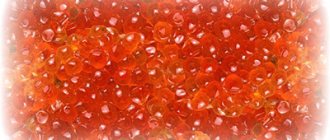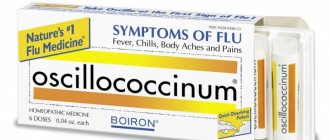Undeniable facts about the dangers of sweets and chocolate
Chocolate is a strong allergen.
Sweets are prohibited foods in most diets. Lactation is no exception. Sweets, including chocolate, should not be eaten while breastfeeding if you have allergies to the components or if the baby’s digestive tract is intolerant to certain ingredients.
Harm of sweets:
- Foods with large amounts of protein often cause allergic reactions. The treat contains milk and may also contain vegetable proteins.
- Caffeine has a stimulating effect on the child's nervous system. Even a small amount can negatively affect the baby's condition.
- A large amount of fast carbohydrates leads to excess body weight, causes addiction in a child, and increases the possibility of developing diabetes.
- Preservatives, dyes, flavor enhancers and other chemical additives are harmful to the developing organism.
- Low-quality confectionery products contain hydrofat and solid vegetable oils that are unsuitable for infant nutrition.
When and how much delicious product can a nursing mother have?
Can a nursing mother eat chocolate? The issue remains quite controversial. Every specialist has arguments for and against such products. At the same time, there is enough disagreement about the type of this useful product.
Dark chocolate is credited with having a negative effect on the child’s nervous system and putting unnecessary strain on his cardiovascular system. White chocolate is harmful due to its high carbohydrate content, which leads to intestinal upset and increased gas formation in the baby.
There is a widespread belief among ordinary people that white sweetness has little in common with a natural product. This type of chocolate is simply harmful not only for nursing mothers, but also for all other people. But nutrition experts for women during lactation claim that white chocolate is most suitable for a young mother, as it is well digested in the intestines and is more fully absorbed.
The effect of chocolate on the baby’s body depends on the time when the woman started eating this product and the amount of delicacy eaten per day. Nutritionists of even different views agree on one thing: a mother can eat chocolate no earlier than the child is 5 months old. By this age, the baby’s immune system will have become sufficiently developed; the little person will already have protection against any allergic aggression.
We suggest you read: Oxolinic ointment during pregnancy. Is oxolinic ointment suitable for pregnant women?
Does chocolate still have any benefits?
Like any other food product, chocolate not only causes harm to the human body, but also contains beneficial substances. Of course, this only applies to natural tiles without chemical additives.
The benefits of chocolate for a nursing mother
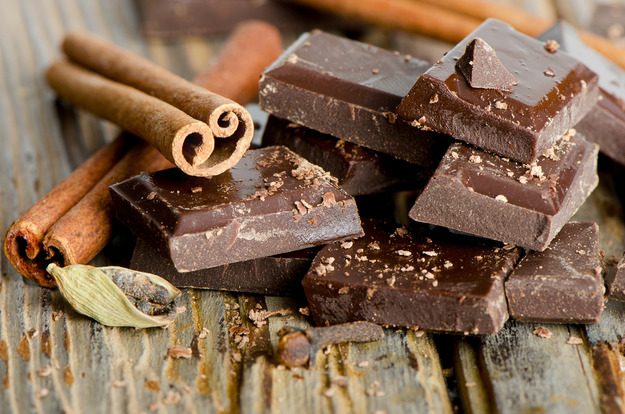
Chocolate contains many beneficial vitamins
When talking about whether you can eat chocolate while breastfeeding, you need to weigh the pros and cons. In addition to harm, it brings benefits to the body. Cocoa beans are rich in antioxidants that slow down cell aging and support the functioning of the cardiac system.
Chocolate activates the release of endorphins, the so-called happiness hormones. They improve the mood of a nursing mother and help cope with stress. The delicacy gives strength and provides the body with the energy necessary to care for the baby.
The product also contains vitamins and minerals from natural ingredients. These are vitamins A, E, K, group B. Minerals - potassium, phosphorus, calcium, magnesium, iron, zinc.
What are the benefits of chocolate for nursing mothers?
Under natural conditions, the sweetness beloved by many is obtained from cocoa beans. International supplies of chocolate are the main export item of some countries in Africa and Latin America. In the production of this product, only finely processed cocoa, cocoa oil and natural sugar are used.
The most beneficial substances in chocolate are antioxidants. They stimulate the work of the heart muscle of the coronary vessels and prevent the aging process of human body tissue cells. In addition, a sweet product can become a supplier of iron, calcium and copper to a woman’s body. A large amount of vitamins A and E will also not be superfluous for a nursing mother.
During lactation, chocolate stimulates the release of endorphins into the blood. In everyday life, these substances are called hormones of happiness, since their increased content leads to increased ability to work and a good mood. To achieve a positive effect from eating this treat, 25–30 grams of chocolate per day is enough.
A tasty and healthy product, among other things, is an almost irreplaceable source of energy for a nursing woman. This natural delicacy contains a large amount of theobromine, a stimulator of most metabolic processes in the cells of the female body.
The caffeine found in chocolate has almost the same effect. True, it is much less than in coffee or green tea. 100 grams of chocolate corresponds to approximately 10 grams of instant drink. This property allows us to answer positively the question of whether it is possible to eat chocolate while breastfeeding.
And finally, positive emotions are useful for new mothers. Refusal of a favorite dish or delicacy always worsens the mood of any woman, and during lactation this can affect the quality and quantity of breast milk. Breastfeeding experts in most developed countries are skeptical about the practice of strict dieting for breastfeeding women. It's all about the amount of product consumed and the reaction of the child's body to changes in the mother's diet.
Is it okay to have chocolate while breastfeeding?
Breastfeeding is not a reason to give up your usual foods. But this only applies to healthy food that does not harm the body. Chocolate has beneficial properties and can be included in the diet of a nursing woman in small quantities. Of course, not in the first month of a newborn’s life, when the mother must follow a strict diet.
Treats are allowed only if there are no contraindications. Due to its beneficial qualities, it should be consumed in small quantities. During lactation, natural chocolate replenishes the lack of glucose, provides the nursing woman with antioxidants, and reduces stress levels.
Attention! When breastfeeding, you can have 25 g of dark chocolate (1/4 of a standard bar). It is permissible to try it for the first time after 3 months after birth at a dose of 5-10 g. A new product should be introduced in the first half of the day, carefully observing the baby’s reaction.

In the first months of a baby’s life, a woman has to adhere to a certain diet, so it is better to give up chocolate
In what cases is it absolutely impossible?
Sometimes a treat may be contraindicated, and not just undesirable for consumption. Most often, such restrictions are prescribed by a doctor.
You should avoid sweets if:
- the child is under 3 months old;
- a nursing mother or one of her close relatives is allergic to cocoa;
- the baby is susceptible to allergic reactions, and the doctor prescribed a hypoallergenic diet;
- the baby is bothered by problems with digestion or night sleep;
- during pregnancy, the woman did not eat the treat due to allergic reactions to it or problems with the gastrointestinal tract;
- diabetes in mother or child.
When is it still possible?
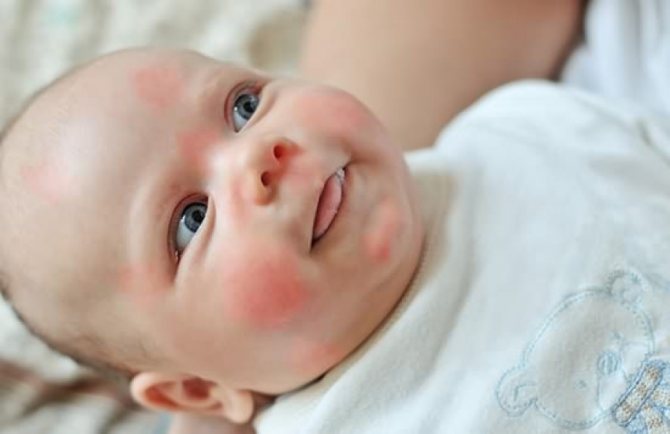
If the baby has an allergic reaction, then the woman must immediately remove chocolate from her diet.
During lactation, chocolate in small quantities is allowed for consumption by a nursing woman. The main condition is the absence of negative consequences for the baby. It is important to comply with the permissible limit - 25 g.
Basic conditions when you can eat chocolate while breastfeeding:
- baby over 3 months;
- the child is completely healthy;
- the baby, nursing mother and other family members do not have an established allergy to cocoa or protein;
- When using the product during pregnancy, no allergic reactions were observed in the body.
What candies are allowed?
A nursing mother can sometimes allow herself a little natural dark chocolate. It is not advisable to eat sweet chocolates while breastfeeding. In most cases, they are produced with fillings containing flavors, dyes, stabilizers, and flavor enhancers. An exception may be a candy made from dried fruits in dark chocolate.
It is advisable to replace lollipops with caramel containing less coloring. Any fillings with the taste of citrus fruits, exotic fruits, coffee, cognac, or liqueur are prohibited during breastfeeding. White marshmallows and marshmallows without additives are acceptable in small quantities.
Natural marmalade candies will do more good than harm. The problem is that they are difficult to find. In most cases, industrially produced marmalade contains artificial colors and flavors.
If you don't have allergies, you can sometimes indulge in sweets made from halva or seeds or nuts in a dark natural glaze. The same goes for Turkish delight and kozinaki. The permissible norm of such sweets is 50-100 g per day. Daily consumption is not advisable.
White chocolate for breastfeeding
The main difference between the composition of white chocolate and dark chocolate is the presence of only 1 main ingredient - cocoa butter. There is no cocoa liquor or cocoa powder in it, so there is little caffeine. For this reason, mothers of children with increased excitability of the nervous system can consume white chocolate while breastfeeding. It is also easier to absorb by the body.
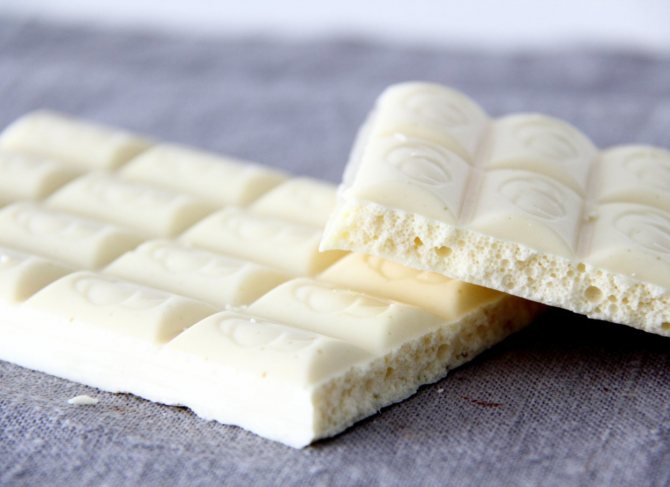
But that's where the benefits end. White chocolate contains more chemical additives than dark chocolate. First of all, these are palm oil and other fats that are undesirable for a nursing woman. Cheap bars may not contain cocoa butter at all. They can be distinguished not only by the composition on the packaging, but also by their sugary-sweet taste, strong smell, and pure white color.
The sugar content is higher than in dark milk, so it can cause gas formation and colic in infants. The calorie content is higher due to light carbohydrates, which are harmful in large quantities. There are also emulsifiers, soy, flavorings, etc.
When deciding for yourself whether white chocolate is ok for breastfeeding, you must first make sure that there is no allergy to natural bitter chocolate. You can also always prepare it at home from cocoa butter, milk powder, powdered sugar and vanillin. In this case, it will be immediately clear whether the baby’s reaction was caused by the main components or whether the chemical additives contained in industrially produced tiles are to blame. The daily consumption rate in the absence of contraindications is 25-30 g. You cannot eat it every day.
Benefit
Women most often love sweets, so they are often interested in what sweets they can eat while breastfeeding, especially chocolate. Dark chocolate will only bring benefits to a nursing mother; the main thing is to know how to eat it. It contains vitamins, minerals, magnesium and potassium. They help normalize the functioning of the nervous system. Dark chocolate has the following properties.
- Eating chocolate stimulates the synthesis of endorphins, which are known as joy hormones. They improve your well-being, give you a boost of energy and improve your mood.
- The product is rich in antioxidants. This slows down aging and preserves youth. Has a beneficial effect on the functioning of the heart and blood vessels.
- It helps cope with glucose deficiency, headaches, and chronic fatigue.
- It contains phenylalanine. It is known as an aphrodisiac. These substances are used to attract a partner. They have a positive effect on potency and libido.
- Thanks to iron, the composition of the blood improves, it is saturated with oxygen.
There are no categorical prohibitions on eating chocolate while breastfeeding. It is important to eat it correctly. Doctors do not recommend such sweetness until 6 months after birth, but dark dark chocolate - up to 3 months. According to the recipe, dark chocolate contains less sugar than other types. The percentage of cocoa in it is much higher.
This composition ensures that the product is nutritious, so it is safer for breastfeeding. Nursing mothers should not choose a product that has a very high percentage of cocoa (above 90), since cocoa has a stimulating effect on the baby’s nervous system. You can eat chocolate before, but provided that the mother has never had a reaction to such a product, especially during pregnancy. A piece of dark chocolate, like dark chocolate when breastfeeding, will only bring benefits.
In the first month
The consumption of dark dark chocolate in the first month after childbirth is strictly prohibited. The organs of the gastrointestinal tract continue to develop after birth. They adapt to new environmental conditions, so they may react incorrectly to some foods. Chocolate is a strong allergen, so the risk of a negative reaction in the first month increases many times.
If the child feels well and does not have allergies, it is recommended to introduce chocolate into the diet during breastfeeding at 3 months. If there are any problems, the use of such a product by a nursing mother for up to 6 months is prohibited. The first time you can eat one piece. After this, carefully monitor your baby’s reaction.
If the introduction went well, you can gradually increase the dosage. Breastfeeding women should not eat more than 6 pieces per day.
| 1 month | 2 month | 3 month | |
| How to use | Eating is prohibited | It is not recommended for use, but your doctor may allow it after taking all factors into account. | It is allowed to be introduced into the diet if the baby feels well. The maximum dose is 6 pieces. |
Breastfeeding experts have different opinions about eating chocolate. The Western school adheres to the idea that a woman during breastfeeding can eat whatever she ate during pregnancy. Of course, you should observe moderation and pay attention to the newborn’s reactions.
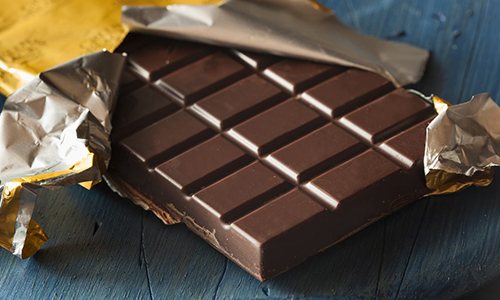
To understand whether it is worth eating chocolate during lactation, you need to understand how it can be useful or harmful for the mother and baby. The benefits of chocolate are quite great if we are talking about a real high-quality product without the addition of food “chemicals”.
- Chocolate is rich in antioxidants, which rejuvenate the body, slow down aging and have a beneficial effect on the functioning of the heart muscle.
- Just 25 g of chocolate can trigger the release of endorphins in the body - the hormones of happiness. They will improve your mood and help fight fatigue and stress.
- Potassium and magnesium in the composition will have a beneficial effect on the functioning of the nervous system, and will also help strengthen muscle fibers.
There are many myths about the dangers of chocolate, for example, that this product is addictive. In fact, carbohydrates cause addiction (the more you eat, the more you want), but chocolate itself cannot cause any addiction. If you use it in moderation, then no sad consequences will happen.
Another myth talks about the high caffeine content in chocolates. Yes, there is a little of this substance there, but this amount is negligible (about 6 times less than in a cup of espresso).
The main harm that chocolate can cause is all kinds of allergic reactions in mother and child. They can manifest themselves as skin rashes, abdominal discomfort, swelling, lacrimation, cough, etc.

An allergy can be both to chocolate itself and to other components of the treat (nuts, dried fruits, cereals, powdered milk, etc.), this fact must be taken into account when choosing a treat
In rare cases, if you overuse chocolates, the following problems may occur:
- Cow's milk protein can cause constipation and colic in infants. This is especially true for those who prefer milk chocolate.
- If you are sensitive to caffeine, even a small dose will affect your child's behavior. The baby will be restless and sleep may be disturbed.
- The high calorie content of the treat will most likely cause the mother to gain excess weight. Excess weight is a risk of developing diabetes and many other diseases.
- Due to the abundance of sweets in the diet, a nursing mother will definitely have problems with her teeth.

If we talk about whether chocolate is possible for a nursing mother, then you need to find out the following points:
- Did mommy eat chocolate and chocolate candies during pregnancy?
- Do close relatives have allergies to this product?
- Does the mother herself suffer from allergic reactions to the treat?
In the case when no one in the family is allergic to chocolate and the mother ate it while carrying the baby, then you can safely try introducing the product while breastfeeding. Otherwise, you should wait until the end of the breastfeeding period, replacing this treat with a safer one.
One of the well-known qualities of sweet tiles is the ability to improve well-being and mood. This happens due to the fact that the consumption of chocolate promotes the production of endorphins - the hormones of happiness. This substance also evens out the emotional background of a young mother, relieving anxiety and nervous tension.
Chocolate is also valued for its ability to have a beneficial effect on the body. It has useful properties:
- improves brain function;
- reduces the risk of heart attack;
- normalizes blood pressure;
- strengthens bone tissue;
- has a tonic effect;
- improves skin condition.
Do not forget that this product is very high in calories. This must be remembered by women who gained excess weight during pregnancy and are now trying to lose a few kilograms. In this case, excessive consumption of chocolate can negate all the efforts of the nursing mother.
There are so many myths surrounding this familiar delicacy, and this is in the 21st century. Some compare it to a drug, insisting on strong dependence and addiction to this product with regular use. However, they are silent about the fact that you can earn them only if you eat about 50 chocolate bars a day.
Others say that it contains too much caffeine, from the harmful effects of which no one is immune to their body. Although they forget to mention that there is 6 times less of this harmful substance in one bar than in a standard cup of coffee. Needless to say, a small cube of chocolate contains several times less caffeine.
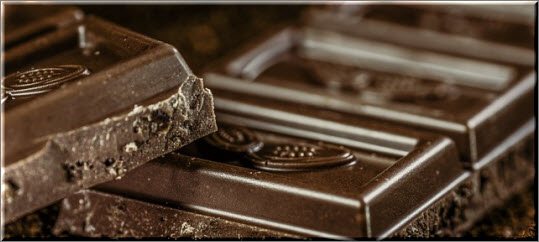
People rush from one extreme to another out of simple ignorance. After all, real high-quality chocolate itself contains many valuable substances.
What are the benefits of chocolate?
- It slows down the aging process and normalizes the functioning of the heart muscle. How? It's simple. It contains ground cocoa beans, which contain more antioxidants than green tea.
- It helps nursing mothers fight headaches, feelings of depression and chronic fatigue after childbirth. After all, they are caused precisely by a lack of glucose, which is felt most strongly against the background of a weakened body.
- It simply improves mood, eliminates the manifestations of postpartum depression, and improves performance. It has everything for the additional production of endorphins - hormones of happiness in the body and you can’t help but take advantage of it.
We suggest you read: How much dexamethasone can you take when planning pregnancy?
It’s also worth mentioning that chocolate is incredibly nutritious. 100 g contains more than 500 kcal, which means that even a small piece of it can provide the mother with energy and additional strength, which she especially needs during this period.
In addition, good chocolate is also rich in nutrients. Among other things, it contains the most important vitamins and microelements - iron, calcium and phosphorus. Even if not in the daily amount that a nursing woman needs. However, this is an additional charge that definitely won’t be superfluous.
Is chocolate good for a newborn? Practicing American doctors, including nutritionists and gynecologists, tried to answer this question. They conducted studies with pregnant and lactating women consuming the product in moderation. As a result, they were able to find out that it itself has a beneficial effect not only on women, but also on their babies.
Newborns' behavior changes after consuming it. During periods of wakefulness, they become more active, smile more often, and during sleep - less restless. Scientists explain this by changes in the mood of the youngest mother, which invariably affect her child.
Common chocolate myths
There are many myths about eating chocolate while breastfeeding. In most cases they are far from the truth. Let's look at some of them:
- "This is dope". Only consuming 55 bars at a time can cause physical addiction.
- "Lots of caffeine." In fact, it contains only 20-60 mg of caffeine per 100 g. The same coffee contains up to 160 mg.
- "Bad for the heart." On the contrary, cocoa beans contain polyphenols that have a positive effect on the heart.
- "Cholesterol increases." Oleic and stearic acids do not contribute to the deposition of cholesterol.
- “Promotes the development of caries in nursing women.” Large amounts of sugar can cause tooth decay, like any food. But cocoa beans contain antibacterial substances that prevent the development of caries.
- “It makes you fat.” In fact, like any product containing a large amount of simple sugars. Dark chocolate does not cause an increase in appetite, because... it is less sweet than white or milk.
- “Consumption of white chocolate is preferable while breastfeeding.” In fact, it contains high amounts of sugar and protein, which can cause digestive problems, severe colic in babies, and more additives than milk or dark chocolate.

There are many myths about the dangers of chocolate
What kind of chocolate is there?
Lactic
It contains milk or dry cream. This product is contraindicated for mothers whose children are prone to allergies to cow protein.
Dark
The most common type. It, in turn, is divided into classic and dark chocolate. Contains crushed and heat-treated cocoa beans, as well as powdered sugar.
White
It does not contain cocoa beans, but contains a large amount of carbohydrates. Easily absorbed by the body.
Dark chocolate is considered the most valuable. It consists of 70% grated cocoa beans and has no artificial flavors. But dark chocolate is not recommended for a nursing mother. It can cause a severe allergic reaction in a child.
The original type of product is white chocolate. It does not contain cocoa beans, but it contains a large amount of carbohydrates. Eating this delicacy can lead to disruption in the baby’s digestive system, causing increased gas formation and colic.
Classic dark chocolate does not have such a high concentration of cocoa beans in its composition, so its effect on the body is milder. It is this kind of chocolate, without flavoring additives or fillers, that is most preferable for women to consume during lactation.
Possible reactions of the baby to the product
Eating chocolate by a nursing mother can cause a negative reaction in the child from the digestive, nervous and immune systems. This is due to the composition of the product, the content of genetically modified and vegetable fats, milk powder, refined sugars, flavorings, stabilizers and other chemical additives. There may also be trace amounts of nuts, even if the product itself does not contain them.
When breastfeeding, you should first try dark chocolate, which contains natural ingredients. If there is no reaction to it, only then try white or milk chocolate while breastfeeding.
Attention! If any adverse reaction occurs in a baby, the product should be excluded from the diet! In case of a strong reaction, consultation with a specialist is advisable.
Allergy
The most common reaction of a child to the consumption of chocolate by a nursing mother is an allergic reaction, which is the response of the immune system to the components contained in the treat. There may also be a pseudo-allergic reaction, which has the symptoms of an allergy, but has a different nature. Allergy symptoms in a baby:

Skin rashes are one type of allergic reaction to chocolate.
- skin rash;
- skin redness;
- weeping erosion or peeling of the skin (diathesis);
- lep (crusts on the scalp, similar to scales);
- hives;
- diaper rash;
- runny nose;
- tearfulness;
- cough.
On a note! Cocoa butter and cocoa powder rarely cause allergies and are considered mild allergens. It is not they that often cause a reaction in infants, but other components: palm oil, trans fats, milk, nuts, flavorings, preservatives, stabilizers, taste enhancers.
If allergy symptoms appear, chocolate should be excluded from the diet. Symptomatic treatment prescribed by a specialist may be necessary. Even if the doctor confirms an allergic reaction in the baby, you should not despair. After a few months, you can try again to introduce the treat into your diet. The child will grow up, the body will get stronger and may no longer react to it. But this should be done with caution, in the morning, in a small portion (5 g).
Changes in the gastrointestinal tract
Digestive problems in infants can arise due to intolerance to individual components, imperfections, underdevelopment of the gastrointestinal tract, lack of enzymes produced, and large amounts of light carbohydrates. This condition can manifest itself in different ways:
- constipation;
- diarrhea;
- bloating;
- increased gas formation;
- heartburn;
- frequent regurgitation;
- colic;
- intense crying for no apparent reason.
In most cases, symptoms of gastrointestinal upset disappear after defecation. But you can’t eat chocolate during breastfeeding for the next six months; the child’s body is not yet ready to digest it. Violation of this rule can lead to the development of chronic gastrointestinal diseases in infants.
Restless state
The baby's nervous system is not yet fully developed. Therefore, any impact on it can have an exciting or inhibitory effect. Chocolate contains caffeine, which has a stimulating effect on the central nervous system. Of course, the amount of this substance is less than in coffee. But for a small organism this may be enough. Especially if the nursing mother exceeds the permissible limits.
This is manifested by anxiety, irritability, and tearfulness in the infant. He has difficulty falling asleep and wakes up quickly. Then you can try white chocolate, which contains only cocoa butter and less caffeine than dark chocolate.

The child's restless state can also be a consequence of the mother's consumption of chocolate.
Who should not eat chocolate?
A nursing mother should be careful when introducing this product into her diet. If she or her relatives are diagnosed with diabetes, then they should stop eating any type of chocolate.
If you are prone to allergic reactions, eating chocolate is possible, but not before the child is 6 months old. Before trying a sweet bar, a mother should consult a pediatrician to rule out the possibility of the baby developing a severe allergy.
The answer to the question: is it possible to have chocolate when breastfeeding a newborn? This delicacy can cause both allergies and digestive upset in the baby. Therefore, in the first month after the birth of a child, eating chocolate is prohibited.
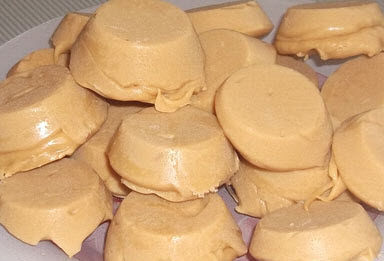
Mom, if she decides to diversify her menu with this delicacy, needs to follow the recommendations of experts:
- You should not eat treats in the first three months after birth;
- Eat the first portion of chocolate in the morning, remember that it is no more than 5 grams;
- Over the next three days, monitor the baby; if all is well, the next portion of the treat can be increased to 25 grams;
- eat chocolate no more than once a week;
- Avoid low-quality chocolate bars that contain various additives; such chocolate is harmful not only to the child, but also to the mother.
The best period when a nursing mother can eat chocolate is 6 months after the birth of the baby. But if the desire to eat the delicacy is great, then it is permissible to eat a “square” of chocolate when the child reaches three months of age and observe the baby’s reaction. If allergies or digestive problems occur, you will have to give up the treat for 2-3 months.
When buying a sweet bar in a store, pay attention to the composition of the product. The composition of good chocolate, without additives or fillers, should include:
- cocoa beans;
- powdered sugar;
- cocoa butter.
Manufacturers often, in order to save money and reduce production costs, use various harmful additives: palm oil, preservatives, stabilizers. This type of chocolate is not recommended for a nursing mother to consume.
The color of the chocolate should be rich and the surface of the bar should be smooth. It is unacceptable to use a product that has a white coating on the surface. Be sure to pay attention to the expiration date of the product and its price category. A quality product cannot be cheap.
What can be replaced?
If chocolate is prohibited during breastfeeding due to the baby's reaction to it, or the allowed amount is not enough for mom, then you can replace it with other products. If you want to eat sweets, you can take dried fruits (dried without smoking), natural marmalade, marshmallows, marshmallows, shortbread oatmeal cookies. In the absence of allergic manifestations in the baby, halva, kozinaki, and condensed milk are allowed in small quantities.
When the delicacy was used by a woman as a stimulant, you can drink herbal teas, rosehip decoction, and increase walks in the fresh air. Getting enough sleep and rest whenever possible will also help.
Choosing the right chocolate
While breastfeeding, you should avoid chocolates and candy bars. Bitter, dark chocolate with a cocoa concentration of 72% or more is allowed for consumption. The bar must contain cocoa butter and cocoa mass. The absence of any of these ingredients indicates the presence of chemical substitutes.
You should not eat products containing palm oil, coconut oil, trans fats, preservatives, flavorings, or flavor enhancers. There will be no benefit from it, and side effects will most likely appear.
A quality delicacy can also be determined by some external signs. The real thing will melt easily in your hands (melting point 32 0C). If the tile does not melt in your hands, it means it contains hydro-fat, which is harmful to the body of the mother and child. If you put a natural product in the refrigerator, it will become covered with a white coating. This is a hallmark of high-quality dark chocolate.
During breastfeeding, it is not advisable to eat chocolate with additives. They can also cause allergies and digestive disorders in infants. You will have to exclude the treat from your diet.
When can chocolate be introduced into the menu of a nursing mother, and in what quantities?
The connection between a child and mother lasts throughout life, and the connection with a newborn is especially close and inseparable. Therefore, during breastfeeding, mommy needs to be very attentive to her diet. Until the child turns three months old, when his gastrointestinal tract (GIT) has finally matured, the mother must limit herself to everything that could bring even the slightest harm to the child. Chocolate is no exception.
Until two months after birth, a nursing mother should completely abstain from eating chocolate.
Then you can include it in your diet. It is advisable to consume no more than 25 grams of chocolate per day. It is better for a nursing mother to eat chocolate in the morning and immediately after breastfeeding.
A lot depends on the quality of the product. If you eat chocolate, then it is pure, high-quality, without additives or preservatives. Natural chocolate is a healthy and tasty treat. Each mother feels her child and can set her own standards for using the product, knowing the baby’s reaction. Of course, when consuming chocolate while breastfeeding, you must be careful and moderate, monitoring the baby’s condition.
After the stress of childbirth, you want to treat yourself to something tasty. Many women, without hesitation, go to the store for sweets. Let's figure out whether you can eat chocolate while breastfeeding.
High-quality chocolate has the following beneficial properties:
- cocoa beans contain antioxidants that slow down the aging process of the body;
- stimulates the production of endorphins - hormones of happiness, as a result of which mood improves, a surge of strength and energy is felt;
- contains potassium and magnesium, which strengthen muscles and calm the nervous system.
There are a couple of myths about this product. First: chocolates are addictive. Yes, this is true, but to achieve withdrawal, you need to eat at least 55 bars a day. And second: it contains a lot of caffeine. Yes, they do contain caffeine, but one bar contains 6 times less than a cup of coffee.




